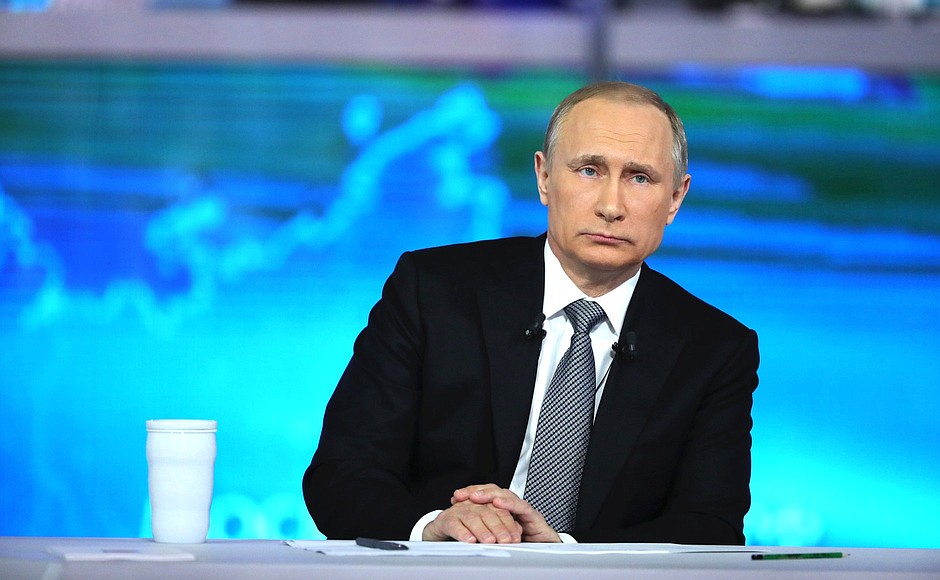by Mark N. Katz
So far, Moscow has managed to maintain good relations with opposing sides in several Middle East conflict situations, including Iran vs. Israel, Israel vs. Syria and Hezbollah, Israel vs. the Palestinians, Iran vs. Saudi Arabia and others, Qatar vs. Saudi Arabia and others, Turkey vs. the Syrian Kurds. Moscow, in short, has good relations with all the major actors in the Middle East except jihadists such as al-Qaeda and the Islamic State.
The recent incident in which Syrian forces shot down a Russian aircraft in response to an Israeli attack, though, raises doubts about how long Russia can continue to have good relations with opposing sides simultaneously in all these bitter disputes.
Nobody likes it, after all, when someone who claims to be one’s friend is also supporting one’s adversary. Indeed, in 2015-16, Russian-Turkish ties turned sour for several months after Turkish forces shot down a Russian military aircraft flying in the vicinity of the Turkish-Syrian border—an episode that took place because Moscow and Ankara were supporting opposing sides in Syria. Yet beginning in mid-2016 after Turkish President Recep Tayyip Erdogan first apologized for the incident and then Russian President Vladimir Putin was quicker to express support for Erdogan than Western leaders during the coup attempt against him, Russian-Turkish relations revived. Similarly, although both Israel and Saudi Arabia strongly object to the presence of Iranian forces in Syria, they do not seem as worried about the Russian presence there in alliance with Iran. Indeed, the Israeli, Saudi, and other Gulf Arab governments appear to believe that Iranian influence in Syria is more likely to be constrained by a continued Russian military presence in Syria than if Russia withdrew and let Iran and its allies have Syria to themselves.
Up to now, Russia has looked the other way at Israeli attacks in Syria when the Israeli military believes Damascus is about to transfer to Hezbollah weaponry that the latter could use against the Jewish state. In a recent such Israeli attack, though, Syrian forces fired a Russian-supplied S-200 air defense missile against a retreating Israeli warplane that missed its target but hit a Russian military aircraft instead. The Russian Defense Ministry immediately blamed Israel, and not Moscow’s ally Syria, for this incident. Putin, though, seemed to ratchet this down by suggesting the episode was the result of an unfortunate set of circumstances. But then the Russian Defense Ministry announced, undoubtedly with Putin’s approval, that it would transfer more powerful S-300 air defense missiles to Syria in a move apparently calculated to deter Israeli attacks on Syria due to a greater probability of its aircraft being shot down with this more powerful missile.
Although Moscow may hope that this move calms the situation, it is more likely to exacerbate it. With Syrian possession of the more powerful S-300, Damascus and Hezbollah may well continue or increase whatever activity they have been undertaking that Israel (whether rightly or wrongly) perceives as so threatening. In response, Israel might well launch attacks that somehow work around, disable, or destroy Syria’s S-300s—thus further exacerbating Russian-Israeli relations.
And this is something that Damascus, as well as Tehran, would be very happy to see. Just as Israel is frustrated by Russian cooperation with Syria, the Syrians are frustrated by Russian cooperation with Israel. Even if it was not intended to do so, Syria’s shooting down of the Russian aircraft has worsened Russian-Israeli relations.
It is possible, of course, that this recent downturn in Russian-Israeli relations is temporary and good relations will be restored. This, after all, is what happened after the much worse downturn in Russian-Turkish relations in 2015 when Turkey deliberately shot down a Russian aircraft. But unless Moscow, or some other party, can somehow get Iran, the Bashar al-Assad regime, and Hezbollah on the one hand and Israel on the other to stop targeting each other, Russia may find itself in the middle of an escalating conflict that it does not want to be in.
What these Middle Eastern antagonists hope for from Russia is not that it can resolve the conflict between them, but that Russia’s relations with the other will deteriorate to the point where Russia sides with one side against the other. Thus, Damascus is benefiting from the current deterioration in Russian-Israeli relations. It would also benefit if Russia and Turkey end up supporting opposing sides whenever the Assad regime launches an offensive to recapture Idlib. Similarly, Saudi cooperation with Russia on oil production at a time when the return of U.S. sanctions is limiting Iranian oil exports seems designed to exacerbate Russian-Iranian relations.
Russia has indeed been remarkably successful in its efforts to maintain good relations with opposing sides simultaneously in the Middle East. But some of those opposing sides in the Middle East are also working hard to undercut Moscow’s success. And they are not likely to give up trying.






Russia also needs to be careful that the tables are not turned. That is, that Russia inadvertently becomes the ‘client state’ of these protagonists in the Syrian war (instead of their patron) who are simply using Russia to pursue their own respective agendas.
The author of this article forgets the history of Israel. The native Jews in Palestine and Israel number single percentage figures whereas the rest of those Jews in the area are overwhelmingly the majority and are for all intents and purposes invaders as they settle illegally on Palestinian Occupied Territory.
One other clarification for the uneducated including the Israeli Military who claims the S-300 is no threat to them. Russia has stated the S-300 Systems delivered has been integrated into the Russian Defence systems which means the Syrian S-300 systems will act as slaves to the Russian S-400 Systems thus making them as powerful as though they has S-400. They will be fed targetting and detection information by the S-400.